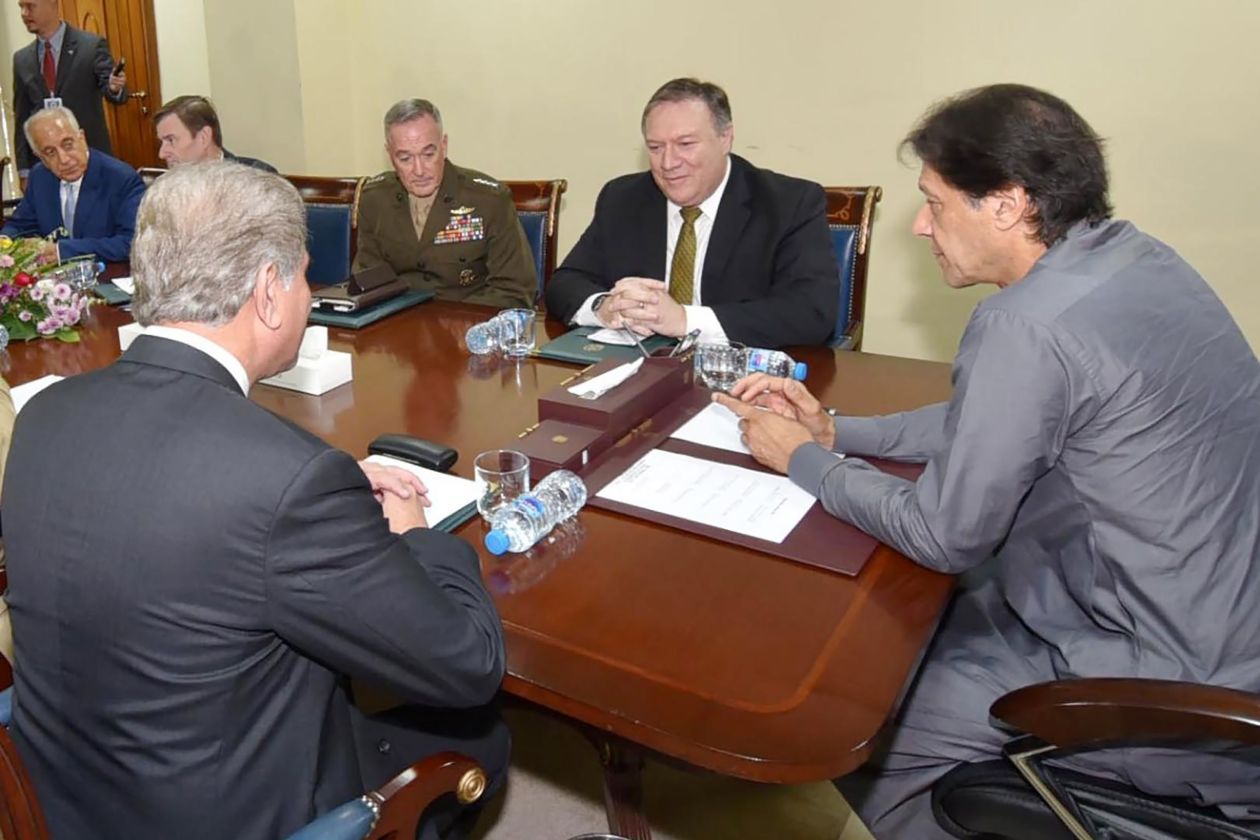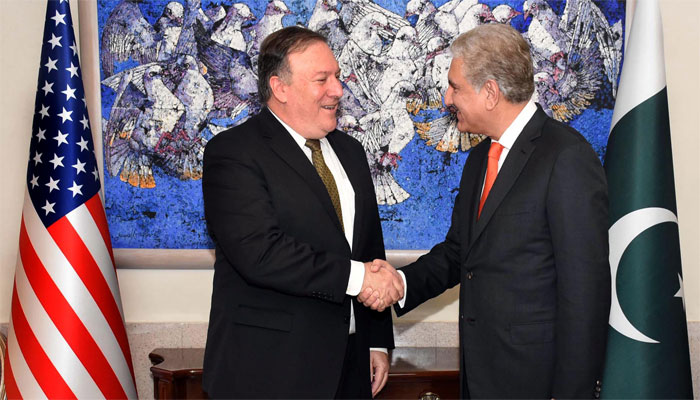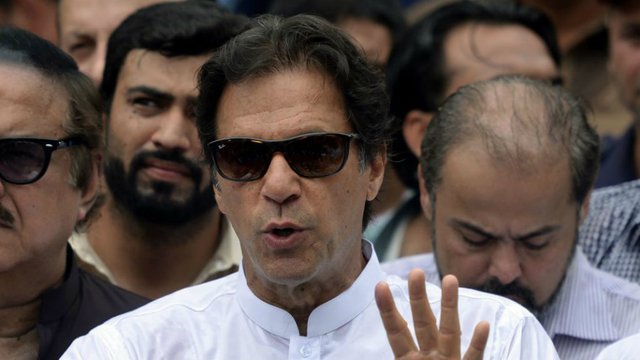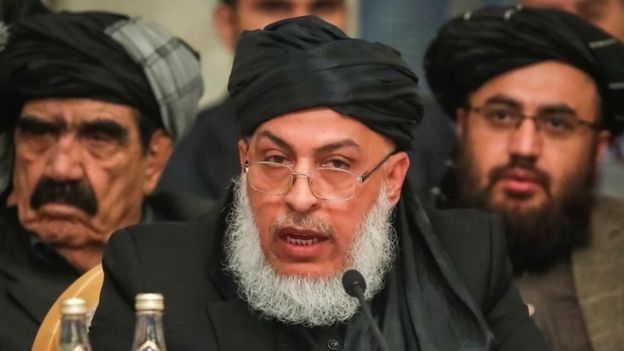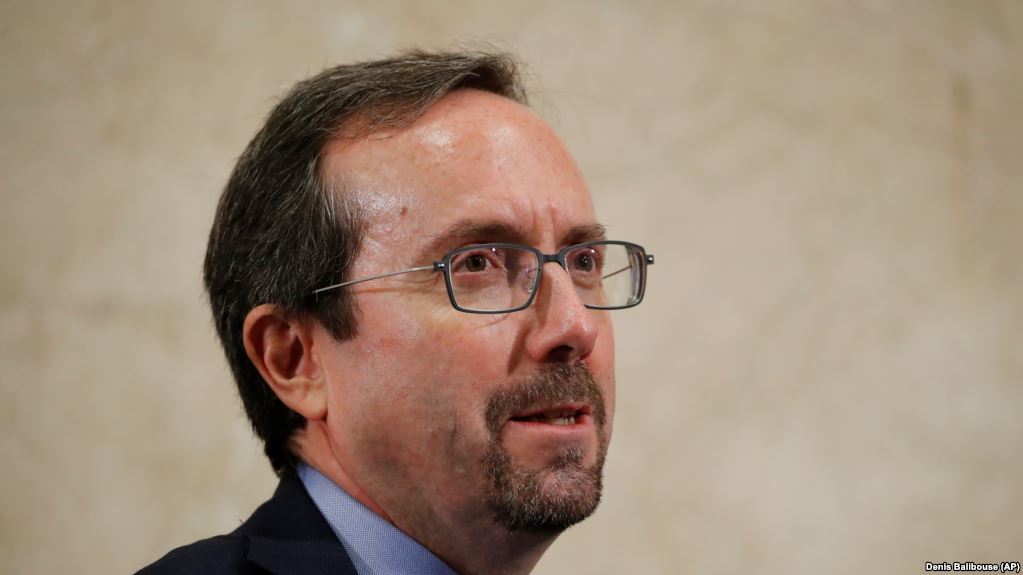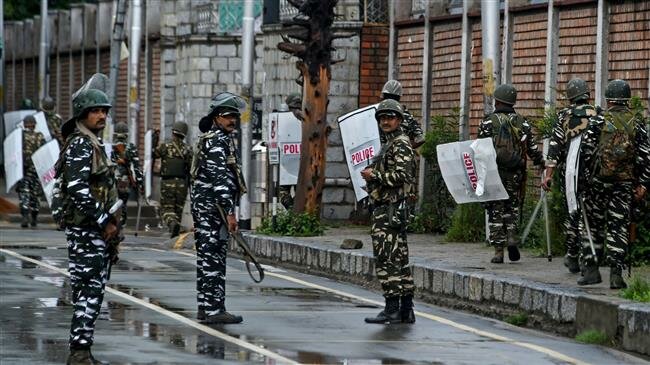Secretary of State says there are ‘a lot more discussions to be had’ after meeting with new Islamabad government
Publish dateWednesday 5 September 2018 - 23:54
Story Code : 170154
AVA- Secretary of State Mike Pompeo said the U.S. and Pakistan have still got a long way to go to reset troubled ties after a visit in which he sought Islamabad’s help in ending the war in Afghanistan.
Relations have soured amid differences over Afghanistan, the presence of militants on Pakistani soil, Washington’s burgeoning relationship with India and Pakistan’s ever-closer ties with China.
The two sides didn’t reach any concrete agreements during the five-hour visit to Pakistan’s capital on Wednesday, but Mr. Pompeo said there were “a lot more discussions to be had” as he boarded a flight to India after meeting with Pakistan’s new leaders.
“We need to begin to do things that will actually on the ground deliver outcomes so that we can build confidence and trust. That was the focus,” he said.
Washington has long accused Pakistan of providing sanctuary to the Afghan Taliban and other jihadist groups, a charge Islamabad denies.
However, Washington has recently shifted its focus from fighting the Taliban to wanting to forge a peace deal. Pakistan and new Prime Minister Imran Khan have consistently called for a political settlement with the Taliban that would give the group a share of the government in Afghanistan.
Pakistan Foreign Minister Shah Mahmood Qureshi described Wednesday’s talks as positive. He assured the U.S. side of full support in bringing the Taliban into peace negotiations.
“Our future is linked to Afghanistan. The future of our children is linked to Afghanistan,”Mr. Qureshi said. “My peace and stability is linked to Afghan peace and stability.”
But Mr. Qureshi warned that if the U.S. wanted Pakistan to focus on its western border with Afghanistan, it would need to help ease tension on its eastern border with India.
India and Pakistan remain in a nuclear-armed standoff, with frequent exchange of gunfire across their disputed border in the Kashmir region. Pakistan also accuses India of using Afghan soil to support terrorists against Pakistan, an allegation New Delhi denies. Islamabad believes that in recent years, Washington has abandoned its decades-old alliance with Islamabad in favor of India.
President Trump, setting out his South Asia strategy last year, blamed Pakistan for giving sanctuary to terrorists and extending the war in Afghanistan. At the start of 2018, his administration suspended security aid to Islamabad in an attempt to pressure Pakistan to act against militants.
Pakistan says it has taken action against all extremist groups and that no terrorist havens remain in its territory. The U.S. doesn’t agree, and the Trump administration has been pointed in saying so.
Mr. Pompeo on Wednesday “conveyed the need for Pakistan to take sustained and decisive measures against terrorists and militants threatening regional peace and stability,” the State Department said.
Meanwhile, Mr. Khan is a longstanding critic of U.S. intervention in the region who has advocated a sharp break with the U.S. antiterror alliance in place since 2001. He has called for a phased withdrawal of U.S. troops in Afghanistan. Mr. Khan in his victory speech after the July election called for an end to the “one-sided” relationship with the U.S. in favor of ties that were mutually beneficial.
“I’m a born optimist. A sportsman always is an optimist. He steps on the field and he thinks he’s going to win,” Mr. Khan, a former cricket star, said of Wednesday’s talks.
Ahead of the trip, Washington said it had taken away $300 million in military aid due to Pakistan. On the plane, Mr. Pompeo confirmed that Zalmay Khalilzad, who has been involved on the U.S. foreign-policy scene in Afghanistan since the 1980s, had been appointed as a special envoy for Afghanistan. Islamabad regards him as an implacable critic.
Pakistan is in a precarious financial position, with dwindling foreign-exchange reserves. In August, Mr. Pompeo had caused concern in Pakistan by saying any International Monetary Fund bailout of Pakistan shouldn’t be used to pay off debt owed to China.
Relations have soured amid differences over Afghanistan, the presence of militants on Pakistani soil, Washington’s burgeoning relationship with India and Pakistan’s ever-closer ties with China.
The two sides didn’t reach any concrete agreements during the five-hour visit to Pakistan’s capital on Wednesday, but Mr. Pompeo said there were “a lot more discussions to be had” as he boarded a flight to India after meeting with Pakistan’s new leaders.
“We need to begin to do things that will actually on the ground deliver outcomes so that we can build confidence and trust. That was the focus,” he said.
Washington has long accused Pakistan of providing sanctuary to the Afghan Taliban and other jihadist groups, a charge Islamabad denies.
However, Washington has recently shifted its focus from fighting the Taliban to wanting to forge a peace deal. Pakistan and new Prime Minister Imran Khan have consistently called for a political settlement with the Taliban that would give the group a share of the government in Afghanistan.
Pakistan Foreign Minister Shah Mahmood Qureshi described Wednesday’s talks as positive. He assured the U.S. side of full support in bringing the Taliban into peace negotiations.
“Our future is linked to Afghanistan. The future of our children is linked to Afghanistan,”Mr. Qureshi said. “My peace and stability is linked to Afghan peace and stability.”
But Mr. Qureshi warned that if the U.S. wanted Pakistan to focus on its western border with Afghanistan, it would need to help ease tension on its eastern border with India.
India and Pakistan remain in a nuclear-armed standoff, with frequent exchange of gunfire across their disputed border in the Kashmir region. Pakistan also accuses India of using Afghan soil to support terrorists against Pakistan, an allegation New Delhi denies. Islamabad believes that in recent years, Washington has abandoned its decades-old alliance with Islamabad in favor of India.
President Trump, setting out his South Asia strategy last year, blamed Pakistan for giving sanctuary to terrorists and extending the war in Afghanistan. At the start of 2018, his administration suspended security aid to Islamabad in an attempt to pressure Pakistan to act against militants.
Pakistan says it has taken action against all extremist groups and that no terrorist havens remain in its territory. The U.S. doesn’t agree, and the Trump administration has been pointed in saying so.
Mr. Pompeo on Wednesday “conveyed the need for Pakistan to take sustained and decisive measures against terrorists and militants threatening regional peace and stability,” the State Department said.
Meanwhile, Mr. Khan is a longstanding critic of U.S. intervention in the region who has advocated a sharp break with the U.S. antiterror alliance in place since 2001. He has called for a phased withdrawal of U.S. troops in Afghanistan. Mr. Khan in his victory speech after the July election called for an end to the “one-sided” relationship with the U.S. in favor of ties that were mutually beneficial.
“I’m a born optimist. A sportsman always is an optimist. He steps on the field and he thinks he’s going to win,” Mr. Khan, a former cricket star, said of Wednesday’s talks.
Ahead of the trip, Washington said it had taken away $300 million in military aid due to Pakistan. On the plane, Mr. Pompeo confirmed that Zalmay Khalilzad, who has been involved on the U.S. foreign-policy scene in Afghanistan since the 1980s, had been appointed as a special envoy for Afghanistan. Islamabad regards him as an implacable critic.
Pakistan is in a precarious financial position, with dwindling foreign-exchange reserves. In August, Mr. Pompeo had caused concern in Pakistan by saying any International Monetary Fund bailout of Pakistan shouldn’t be used to pay off debt owed to China.
Source : خبرگزاری Afghn Voice Agency(AVA)
avapress.net/vdchmvnzk23nqzd.01t2.html
Tags
Top hits
